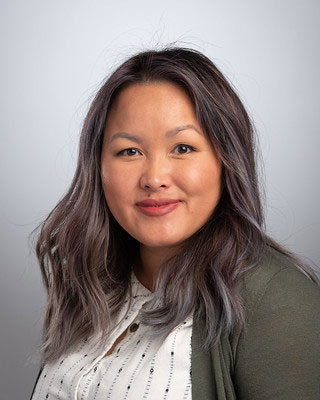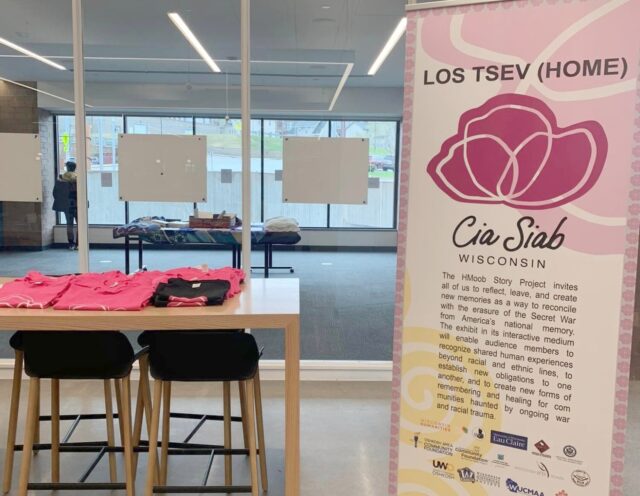“Los Tsev (Home): Cia Siab, WI” is a participatory exhibit with the intent to showcase the lived experiences of everyday Hmoob life. The exhibit is a grassroots collective of Hmong American scholars, advocates, organizers, artists, and community members from across the state of Wisconsin and is based on the responses from a community interest survey conducted by the University of Wisconsin-Madison Professor Dr. Linda Park.
The Los Tsev (Home): Cia Siab, WI exhibition will be on display at The Gallery at Madison College Truax from Nov. 13-Dec. 8, during regular operation hours. The project is funded in part by the Wisconsin Humanities, National Endowment for the Humanities, Community Foundation for the Fox Valley Region, Green Bay Community Foundation, Oshkosh Area Community Foundation, and the Wisconsin Arts Board, in partnership with the Wisconsin Historical Society (WHS) and the University of Wisconsin-Oshkosh.

Dr. Mai See Thao, the director of the Hmong Studies program at the University of Oshkosh, a medical anthropologist, as well as a member of this collective, connected the exhibit elements with her expertise in historical trauma, displacement, the refugee body, biopolitics, and care.
“We focus on historical trauma and healing, and the parties of the team also want to highlight marginalized Hmong identities that are not typically included in the larger story of Hmong people,” Dr. Thao tells Madison365. “This project developed out of a unique need to restore Hmong communities and retell the history of Hmong identities. It also serves as a challenge to the dominating narratives surrounding the United States’ secrecy of the war in Laos and the responsibility the US has to Hmong refugees due to their displacement and trauma. Dr. Thao explains to Madison365 the challenges to education that Asian Americans, especially Hmong Americans, face when trying to access historical perspectives that center their everyday lived experiences.
In many ways, Dr. Thao talks about the significance of representation for Hmong women, girls, and QTI folks as well as the community partners and sponsors that uplift these Hmong identities. She also acknowledges the significance of accessibility, which was a major factor in reaching Hmong communities across Wisconsin.
“We are in partnership with Hmong community organizations like Freedom, Inc., Hmong American Women’s Association,” Thao says. “These are folks who are at the forefront of social justice movements and that is what has informed our project in centering LGBTQ, older adults, and the youth.”
Dr. Thao and the Cia Siab collective hope that previous, present and future generations can be empowered by this reclamation of history and challenge systems that restrict community expressions. Dr. Thao refers to this as a “transformation of patriarchy” which centers the testimonials and personal stories of Hmong women’s experiences beyond a heteronormative perspective.
For more information about “Los Tsev (Home): Cia Siab, WI,” click here.





























